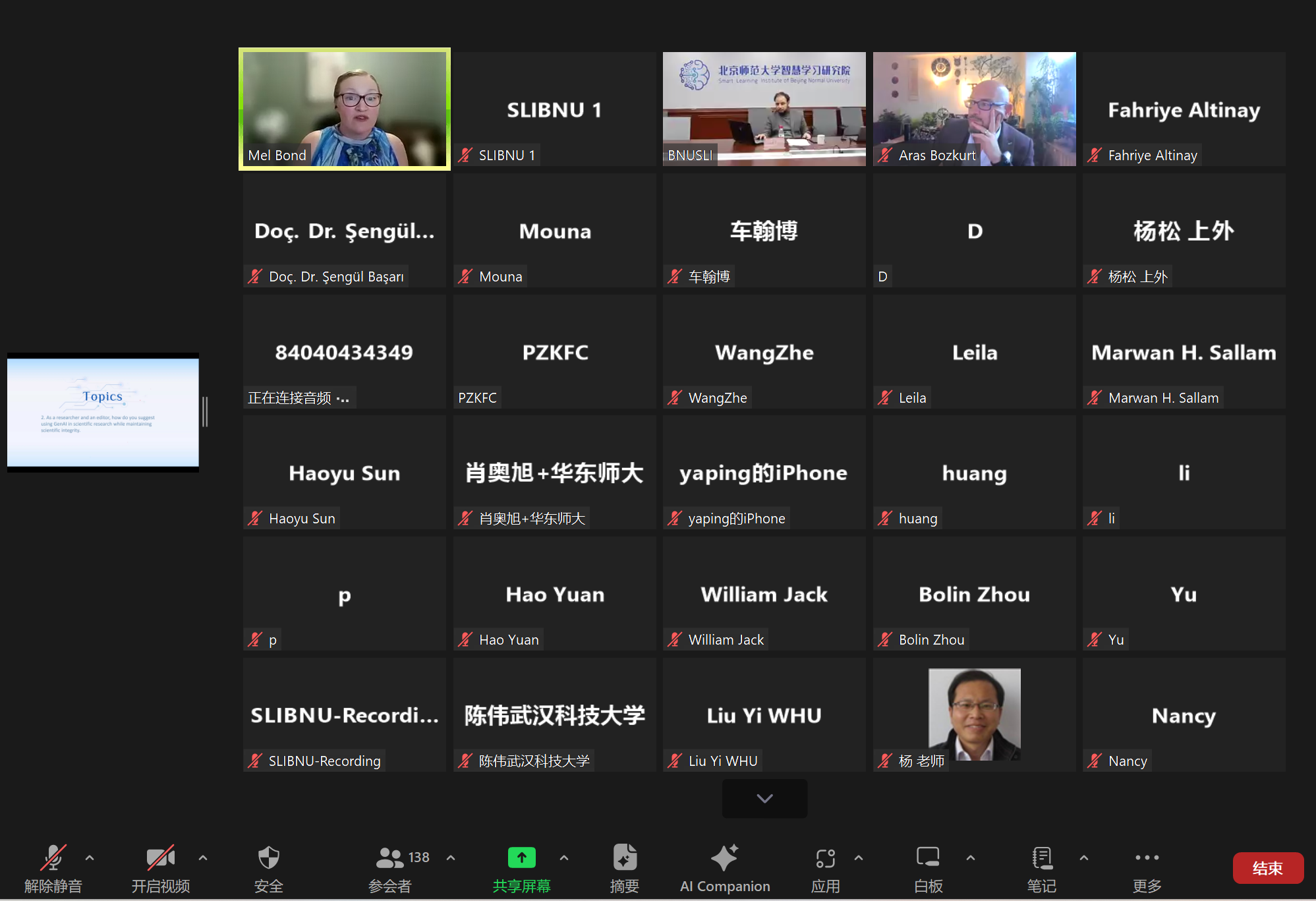Scientific Research in the Generative AI Era: How to Write Quality Research Papers | The 10th Smart Learning Academic Week of Beijing Normal University
date:2025-01-16 18:41author:adminsource:Smart Learning Instituteviews:

On the afternoon of January 10, 2025, the 10th Smart Learning Academic Week of Beijing Normal University successfully hosted the workshop on “Scientific Research in the Generative AI Era: How to Write Quality Research Papers.” This workshop was organized by the Smart Learning Institute of Beijing Normal University and invited international journal editors to share their insights on how generative AI impacts scientific integrity, including writing, reviewing, and publishing scientific research papers. The event was moderated by Dr. Ahmed Tlili, Associate Professor at Beijing Normal University and Deputy Editor in Chief of Smart Learning Environments, and conducted online. There were over 138 participants attending the event. The workshop also featured Dr. Aras Bozkurt, Editor-in-Chief of Open Praxis and Asian Journal of Distance Education at Anadolu University in Turkey, Dr. Khalid Arar, Editor in Chief of Leadership and Policy in Schools at Texas State University, and Dr. Melissa Bond, Co-Editor in Chief of Review of Education at University College London.
During the roundtable discussion, the editors engaged in multiple rounds of dialogue from ethical, integrity, review, policy, and exploratory perspectives, sharing their views on the application of generative AI in scientific research papers. Dr. Melissa Bond highlighted that while generative AI can offer great convenience to researchers, it should not be solely relied upon for tasks such as synthesizing complex and large datasets. Dr. Aras Bozkurt emphasized that generative AI can assist in writing literature reviews, editing, and proofreading, but it cannot replace the author’s original thinking and critical analysis. Therefore, caution should be exercised in its use to avoid over-reliance. The editors also stressed that researchers should be transparent about their use of generative AI in scientific research and take responsibility for all content produced to ensure scientific integrity. Furthermore, Dr. Aras pointed out that, in addition to relying on similarity tools, he also verifies the authenticity of references to identify potential falsification or plagiarism. The editors agreed that, instead of resisting generative AI, researchers should learn how to effectively respond to it, and providing practical solutions is essential. In the Q&A session, the editors addressed audience questions on issues such as the privacy and security of AI tools, ownership of AI models, and the adaptive capabilities of humans and AI in collaborative settings.

Scientific Research in the Generative AI Era: How to Write Quality Research Papers
https://www.bilibili.com/video/BV15Fcbe8Ew7/?share_source=copy_web&vd_source=ae40b808db4d69d2449fe40c89a01dc4
https://pan.baidu.com/s/1L8T1s-oKLrww4rAVOyyATQ?pwd=2501(Code: 2501)

